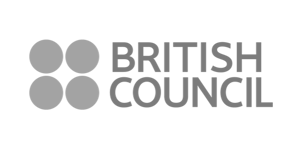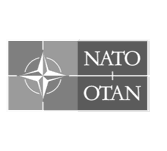
End-to-end learning
Organisational change only happens when teams learn, master and apply new skills and speed and scale.
Trusted by 4,000+ organisations





















Learn. To Change.

Continuous learning experiences
Learning continuity is at the centre of our programmes. Our platform and product stack ensure learners are able to move between stages with ease and continuity.
Connection across the organisation
We aim to kill the silo. We work with you across all areas of the organisation from engineering and technology, marketing and sales to leadership, strategy and change management.
Collaboration within teams
We believe successful organisations are collaborative. Teams who come together to contribute specific skills solve greater challenges and achieve meaningful outcomes.

Why skills alone are not enough
Download our eBook to discover how continuity, connection and collaboration create real business change.

Hear from our customers
“QA's Cloud Academy platform allows us to quickly train and certify our support engineers on the complete portfolio of Microsoft products. We will use our resulting skills inventory data to intelligently assign our support incidents to the most qualified engineers, resulting in faster resolution times, higher throughput, and greater customer satisfaction.”
“[QA is] very valuable for a large part of the whole company. And for them it will really make an impact because they will begin thinking about their brands and their consumers in a different way.”
“QA are fantastic partners in learning, they go beyond a transactional relationship and are able to co-create solutions that uncover value. They are in-tune with our business and purpose and that makes collaboration easy and effective.”
The intersection of learning and application
Our apprenticeships breathe a difference into real organisational projects. Through our digital and data academies, cohorts can make connections and harness impact across the business.


Expert-tailored learning programmes
Our instructor-led and blended learning programmes provide the benefits of our many partnerships, with no extra admin. Organisations get value from a consistent learner experience and collaborative activities to drive innovation and change.
Core training to many, role-based learning to few
Our QA learning platform is built for connection at scale. Customers deploy self-paced programmes for large cohorts, that apply to many, plus-role-based training for tech and business specialists.


Let's talk
Start your digital transformation journey today
Contact us today via the form or give us a call.


Frequently asked questions

Do you do private delivery?
We believe learning as a team breaks silos, enhances the learner experience and helps assimilate and apply new skills. We deliver private sessions to bring teams together, providing a tailored, top-tier training experience.
How often is new training added to the online library?
New training content is made available every month and covers all of our key category areas including: AI & Machine Learning, Cloud, Data, Agile, Business Analysis, Cyber Security, DevOps, Digital Marketing & Ecommerce, Information Technology, Leadership & Business Skills, Project Management and Software.
Do you offer applied and collaborative workshops?
Yes! We provide an unrivalled array of ready-made, customisable, and fully bespoke workshops. This includes SME-led sessions in which staff engage on a specific cloud, coding, or tech hands-on lab with a narrative that is specific to your organisation's use case. Other examples include leadership workshops focused on activities and impact, or bespoke bootcamp-style projects to lock in learning.



